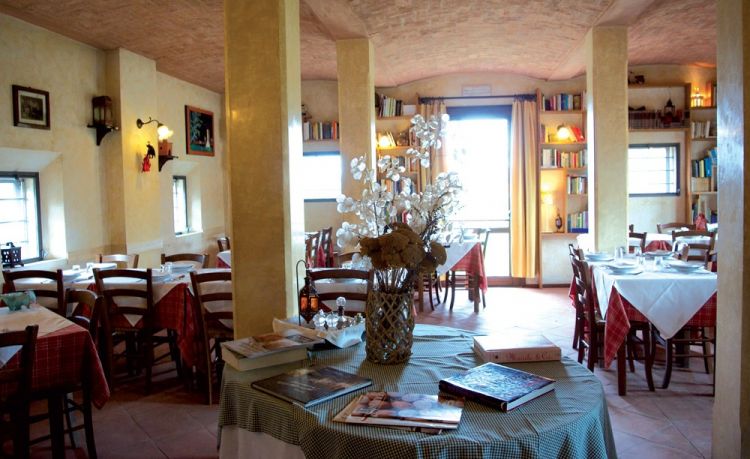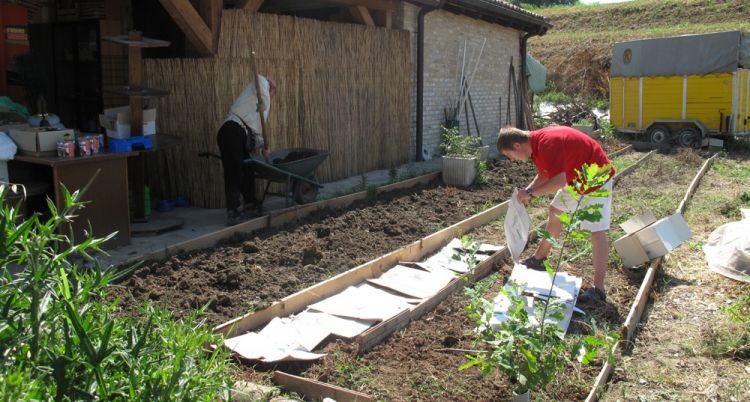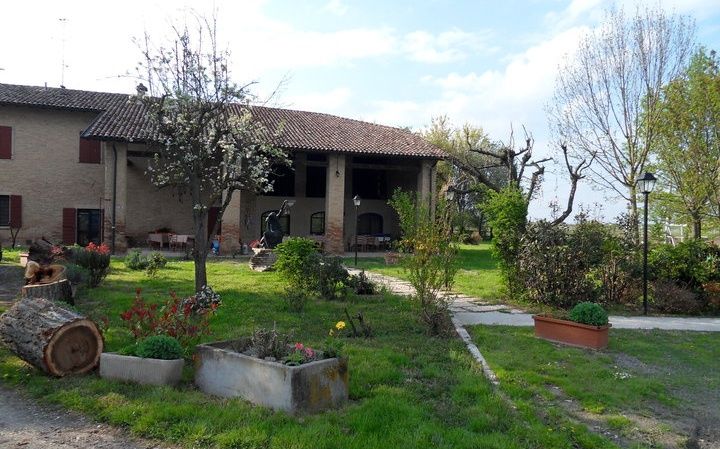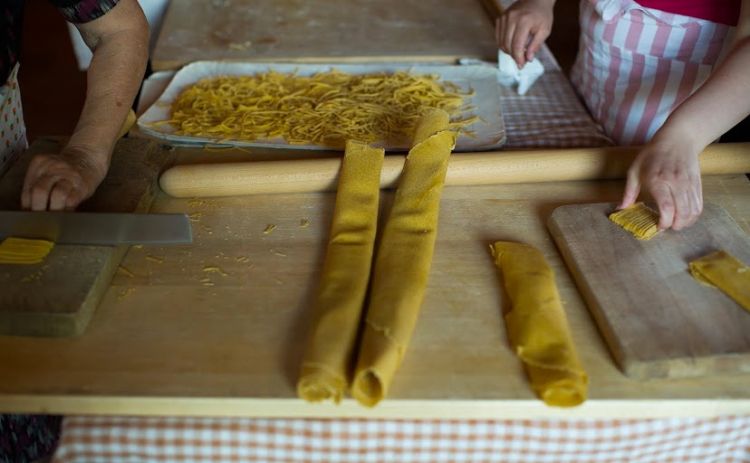Until last June, the work of Giovanni Cuocci, and that of all the team at Lanterna di Diogene in Solara di Bomporto (Modena), perhaps had not received the attention and visibility it deserved. Things have changed when two months ago, more or less, Cuocci was included among the ten finalists in the 4th edition of the Basque Culinary World Prize, the award dedicated to chefs who work to transform society through gastronomy, which is organised and promoted by the Basque Culinary Center, a leading academic institution in the global gastronomic scene, and by the Basque Government, as part of the Euskadi-Basque Country Strategy.
As we said in this article, Giovanni Cuocci did not win: the award went to American of Chinese heritage Antony Myint and his projects on sustainability.
The experience at Lanterna di Diogene, however, is good and remarkable: it’s a farm-osteria which since 2003 has been working to promote a genuine and responsible approach to agriculture and breeding, rewarding the work of people with an intelligence disability. This is why we called Giovanni Cuocci and asked him to tell us about it.
«Our story - Cuocci tells us – started with a group of friends sitting around a table in an osteria, discussing how to address a common desire: a career that would give us enthusiasm and satisfaction, with people with whom we could collaborate in harmony. This was in 2003: I had been thinking for a while about the idea of safeguarding the area surrounding me, which had been deprived by the food industry. I thought the best way to present this idea was by sharing food in a convivial setting, hence the osteria».
You opened the osteria in 2006: was this immediately part of your plan?
Yes, but it took us three years to renovate the house where we are located. So we started from agriculture, from the farm, and gradually strengthened the project.

The dining room at the Osteria
And the work with disabilities?
Another crucial element. When we were speaking of “territory”, we also referred to what is now known as social inclusion: for us it meant taking care of what surrounded us. We believe that agriculture, the way we see it, is a perfect example of inclusion. Our agriculture is synergic: there are no lines in the vegetable garden, but the plants grow and thrive one next to the other. The resulting synergy allows the plants to leave enough nutrients to the ones beside them, while the ones next to them will keep some parasites away and so on. We’ve noticed that diversity is a source of enrichment, not a threat. And the same happens in people’s lives.
How does it work, in practice?
In a simple, natural way. Different people, with different characteristics, and so even different illnesses and intelligences, can help one another, exchange a different vision of the world. By collaborating, by helping each other, you become richer. For us it was essential to start from the idea of safeguarding the dignity of people with various illnesses, who usually don’t have the possibility to work. We give each one the chance to give the small contribution they’re capable of giving. So I’m not helping people in need: we’re all helping each other. If I want to roll out the dough to make tortelloni, then I have to stop to cut it, fill it, close the tortelloni. Instead, if I have two or three people helping me, we will do a better job and faster. By sharing a goal, we will be rewarded when we will taste our tortelloni, and even more so when our clients will tell us they’re very good. Perhaps you only know how to make tortelloni, but you can make some good ones. This is the dignity of work, and it’s priceless.

Were you self-trained, or do you have a specific experience in this field?
As for me, I had acquired a varied experience, what with farming and pedagogy. But I had never run a cooking school. When the idea of the osteria came up, I worked in some restaurants to enrich my technical skills which until then were only based on personal, home-based enthusiasm. My training continued because of the many chefs who have come to Lanterna to give some short seminars: top professionals who spent a week, or longer, with us, passing us their knowledge. For instance, after leaving Osteria Francescana where he was sous chef, Yoji Tokuyoshispent some time with us. He taught me a lot. Each one of us at Lanterna arrived with some knowledge and specialisation: one of the strong points here, however, is that we all do everything. We must all take interest in the others’ work, and try to fully understand it. And we participate in many different ways: take our “sfoglina”, who takes care of the fresh-egg pasta. She’s the psychotherapist at Lanterna!
Have you grown as a chef in these years, and how?
I’ll give you a simple example that I think can explain my journey. When someone first told me about low temperature cooking, I thought of the old wood stoves, with the water tray you placed on top to cook cotechino. Today, thanks to the people I met and to the seminars, we use the most modern low-temperature cooking techniques.

What’s your idea of cuisine?
I’ve always believed my main goal was to fully respect the characteristics and the flavours of every ingredient, to create a harmony in which nothing prevails. Our cuisine is certainly simple, genuine, and even when we use modern techniques, the spotlight is always on the raw materials we use. Indeed, behind every ingredient there’s a very careful research: in the farm, we grow cereals, vegetables, and we produce some meat. However, for example, we don’t have cattle: for every ingredient that we need, we carefully looked for farmers who think exactly like us. I’ve also decided to use only products from Emilia-Romagna: except for coffee, chocolate and vanilla, which you really cannot produce here. Otherwise, I want to showcase my region: there’s no parochialism in this approach, only the desire to convey the culture of a land through its flavours. It’s a bit like the concept of terroir that is used with wines.

The Basque Culinary World Prize gave visibility to your project. What do you foresee in the nearby future?
Acknowledgements like this one help you grow, there’s no doubt. We will continue to grow, to improve, to do better. To present our dishes with greater precision and elegance, to produce more. To give a job to even more people: today there are three people with disability who have a permanent job with us, while there are sixteen who collaborate through the social-career laboratory. We want this number to increase. On top of this, we really hope we can influence the world surrounding us, so that other businesses will accept diversity, welcoming it, offering the dignity we mentioned above.
Translated into English by Slawka G. Scarso
La Lanterna di Diogene
Via Argine, 20
Solara di Bomporto (Modena)
+39 059 801101
osteria@lalanternadidiogene.org